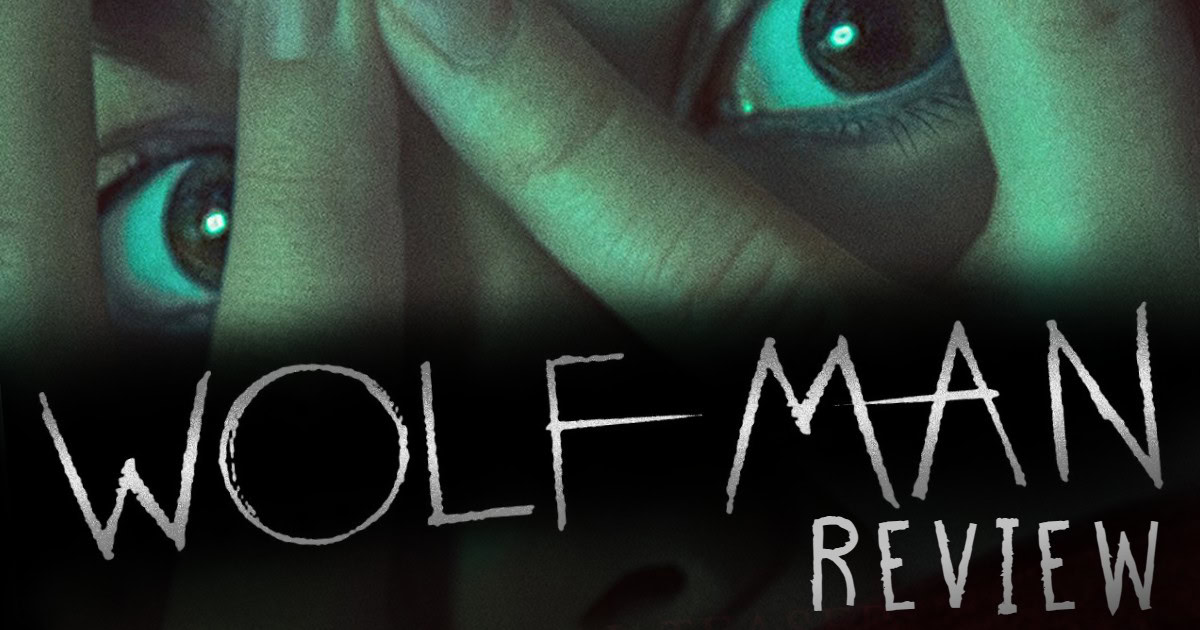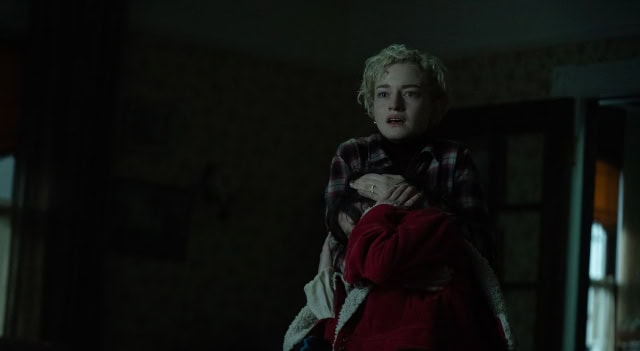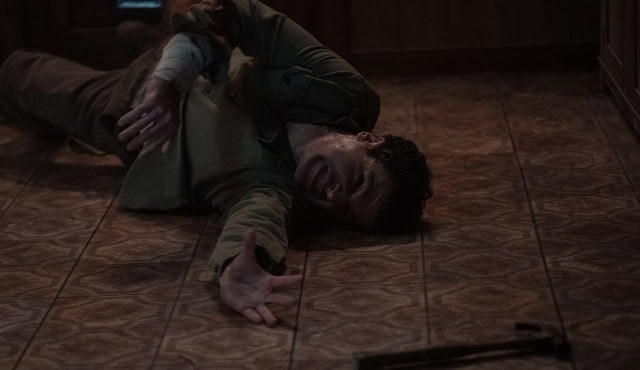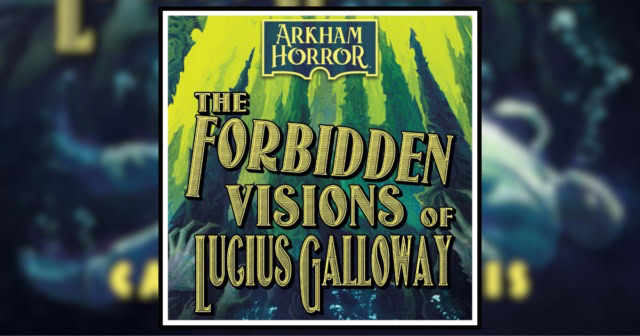Here is Why Wolf Man 2025 is Underwhelming

Wolf Man inspires a mixture of feelings, which is evident from the current Tomatometer. One might be asking themselves, why? On the one hand, Leigh Whannell’s follow-up to The Invisible Man has moments of brilliance. On the other hand, the film has almost nothing new thematically to say about the lore of werewolves. Throughout the 103-minute runtime, Whannell brings some inventive ideas to the body horror genre of changing into an animal. In these moments, the director shows the same inspiring shine found in movies like Upgrade.
However, the allegory of werewolves as a statement on genetically passed down aggression and violent behavior is nothing new. And if there were new territory to explore within these themes, one would believe the mind behind Upgrade and The Invisible Man could have found it. And yet, something feels lacking here.
Wolf Man 2025: An all too familiar Werewolf story
Written by Leigh Whannell and Corbett Tuck, Wolf Man centers on Blake (Christopher Abbott), who grew up in a remote wilderness in Oregon. As the film begins, Whannell shows off what a terrific filmmaker he can be, exercising great use of tension. This story introduces us to world-building as Blake and his father hunt in the woods, but the tables flip as a strange creature hunts them. Here, it’s clear from the jump Whannell is playing with the concept of being a werewolf. It’s treated more as a condition than a reaction to moonlight, as we see the creature hunting during the day. From here, we get a backstory about Blake’s father, who seems to know more about the beast than he lets on.
We cut to the present day, where Blake lives in the city with his wife Charlotte (Julia Garner) and his daughter Ginger (Matilda Firth). While Blake has undoubtedly made a life for himself, he and Charlotte seem to have unease. It’s the type of relationship where both of them as a couple are staying together for their daughter. Furthermore, when Blake is not emotionally distant, he acts short-tempered when his kid does something risky.

We soon learn that Blake’s father mysteriously disappeared sometime after the opening events. With the court finally declaring his father deceased, Blake suggests taking a trip to Oregon to become closer as a family. Charlotte agrees, possibly to repair their marriage. As they embark on the trip, a mysterious two-legged animal causes them to run off the road. Blake gets scratched by the creature, and things slowly change internally and externally for Blake.
Body horror told through skillful visuals and sound design
As Blake evolves, Whannell does excellent work placing us in the perspective of someone becoming a wolf. Much like a dog with heightened senses, such as sensitivity to smell and sound, the film puts us in the shoes of Blake as the slightest noise becomes fragile in his head. There is a spectacular sequence in the movie where Blake thinks the wolf is trying to break into his father’s home, but in actuality, it’s something far smaller, completely disorienting the viewer.
In addition, Blake’s vision and communication capabilities begin to dwindle. Whannell switches perspectives, showing us how Charlotte and their daughter see things as they try to support him versus Blake’s perspective, which is slowly becoming incomprehensible as a human. The visual and audio cinematic language is masterfully used here, painting a picture of a man growing more distant from his loved ones against his will.
Why is Wolf Man 2025 underwhelming?
The “emotionally distant father” themes are handled expertly in Wolf Man, and the film is undoubtedly painfully tragic. The problem is, this angle has been told many times already. Most werewolf depictions use the creature as an allegory of abuse or traumatic abuse being passed down generationally. Most recently, The Beast Within saw Kit Harrington play the role of a distant, aggressive father who would change at night. Another example is Blackout, where Alexander Hurt plays a character grappling with his demons left by his father. With that film, the werewolf analogy loosely hints at the real-life abusive nature of Alexander’s father, the late William Hurt.

To clarify, exploring the cycles of abuse or trauma within the werewolf genre isn’t inherently flawed. However, this approach is overly familiar. It is so familiar that even the Twilight franchise hinted at similar themes in Jacob’s family. While Whannell’s take on The Invisible Man shared elements with Hollow Man, it offered a more potent thematic vision, highlighting the horror of an individual attempting to gaslight and dominate a victim. In contrast, Wolf Man feels like another werewolf movie; aside from its body horror aspects, much of this has been covered before.
Wolf Man is nevertheless thought-provoking
Despite some grievances with the familiar plot and themes, Wolf Man still has positives. The body horror aspects are some of the most emotionally driven in recent memory, and in that way, Wolf Man is in conversation with Upgrade. It’s a tragic depiction of a man slowly losing his humanity and becoming increasingly distant from his family for 100 minutes. After the film ends, at least two or three sequences will remain in a viewer’s head. Even so, it lacks the creative energy felt in his previous Monster movie effort, and that may or may not leave some moviegoers underwhelmed.
Have you seen Wolf Man? What did you think of it? Let us know on social media @mycosmiccircus or on Bluesky @TheCosmicCircus.com!
Severance Season 2 Is Exquisite Television
Book Review: The Forbidden Visions of Lucius Galloway by Carrie Harris an Arkham Horror Novel




